Featured Photo Above:
Addie Joos Benefit Game, July 24, 1911
(Color Restoration by Chris Whitehouse of They Played in Color website)
Baseball History Comes Alive Now Ranked As a Top Five Website by Feedspot Among All Baseball History Websites and Blogs!
(Check out Feedspot's list of the Top 35 Baseball History websites and blogs)

Guest Submissions from Our Readers Always Welcome! Click for details
Visit the Baseball History Comes Alive Home Page
Subscribe to Baseball History Comes Alive
Free Bonus for Subscribing:
Gary’s Handy Dandy World Series Reference Guide
Fred Merkle Photo Gallery
Click on any image below to see photos in full size and to start Photo Gallery:
The Tragedy of Fred Merkle
Part One
“Strength to overcome adversity…that is the enduring legacy of Fred Merkle’s life’” –Author Mike Cameron, speaking of Fred Merkle
As is well-known, on September 23, 1908, New York Giants’ rookie, 19-year-old Fred Merkle, committed a baserunning “blunder” in an important game against the Cubs, which had bearing on that year’s pennant race. The two teams finished the season tied for first. Beating the Giants in a one-game playoff, the Cubs won the 1908 pennant and the subsequent World Series against the Tigers. The New York press at the time blamed Fred Merkle for the Giants’ loss, and the game has gone down in baseball lore as the “Merkle Game.”
My late friend Mike Cameron wrote a book about Fred Merkle a few years ago called Public Bonehead, Private Hero. As I got to know Mike over the years, I learned he was passionate about setting the record straight on the infamous Merkle incident and clearing his name of wrongdoing. It became his life’s mission. I wrote a review of the book at the time, and I’ve reprinted excerpts here:
In Public Bonehead, Private Hero, author Mike Cameron has written a moving account of perhaps the most infamous game in baseball history in which Fred Merkle failed to touch second base following an apparent game-ending hit. It cost the Giants a victory and possibly the 1908 pennant. With the help of a
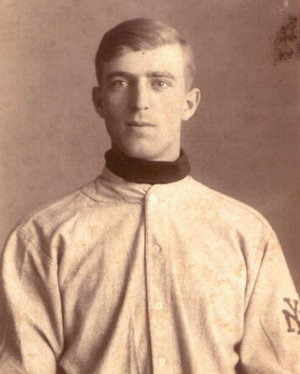
vindictive New York media seeking a scapegoat, he was labeled with the cruel epithet “bonehead,” a slander that haunted him for the rest of his life. It inflicted incalculable pain and became a curse continuing through three Merkle generations.
Despite this handicap, Fred Merkle went on to have a solid 16-season major league career (1907-1926) in which he hit .273 in 1,637 games, amassing 1579 hits, 720 RBI, and 271 stolen bases, including 14 steals of home. From Mike Cameron’s book:
Fred Merkle was a rare power-speed player who usually hit in the clean-up spot, led four teams to pennants, and contributed to two other league championships…Hardly a “bonehead,” legendary sportswriter Grantland Rice described him as ‘one of the most erudite players I ever knew.
How many people in any walk of life could endure such a slander and still achieve success? Yet Fred Merkle did just that. He retired after baseball to a life of quiet dignity as a devoted husband, father, and successful businessman.
Cameron conveys convincingly his contention that Fred Merkle has been tragically wronged. He includes rare interviews with Fred Merkle’s closest living relatives – daughter Marianne, and family historian and grandniece Sue Baxter – who reveal quite explicitly the pain that the Merkle family has endured even to this day, 112 years later.
We learn that Fred Merkle spoke two languages and studied philosophy, history, and advanced algebra. He played the piano and violin and was considered an expert in both chess and bridge. Giants’ teammate Chief Meyers said Merkle often served as John McGraw’s “sounding board.” McGraw rarely consulted anyone except Merkle on questions of strategy.
Fred Merkle’s failure to touch second base was considered customary at the time. When National League President Harry Pulliam changed the ruling following the eerily similar “Gill Game” of September 4 – a mere three weeks before the Merkle incident – he failed to immediately disseminate his decision to the ballplayers [more on the Gill Game to follow in my next post].
Did you have to touch second base or didn’t you? At the time, it just wasn’t clear. This ambiguity set the stage for the tragic chain of events in which Fred Merkle was the ultimate victim. It was a result that could easily have been avoided, and there was plenty of blame to go around. Many from the baseball world came to Merkle’s defense over the years, including legendary broadcaster Red Barber. Another was Hall-of-Fame umpire Bill Klem:
Johnny Evers talked a great and good umpire, Hank O’Day, into making the rottenest decision in the history of baseball. The intent in this rule [at the time] applied to infield grounders and such. It did not apply to cleanly hit drives to the outfield that make a force-out impossible unless the runner on first drops dead.
On a deeper level, Cameron uncovers the true message of the Fred Merkle tragedy: As long as we maintain our dignity, self-respect, and strength of character, we possess the innate ability to overcome many of life’s adversities. How many of us will ever be challenged the way Fred Merkle was? And yet, somehow, Merkle managed to overcome this injustice. As Cameron writes in the emotional conclusion to his Preface:
‘Strength to overcome adversity…that is the enduring legacy of Fred Merkle’s life.’”
(MORE DETAILS ON THE “MERKLE INCIDENT” TO FOLLOW IN MY NEXT TWO POSTS.)
Gary Livacari
Information: Excerpts edited from Public Bonehead, Private Hero, by Mike Cameron
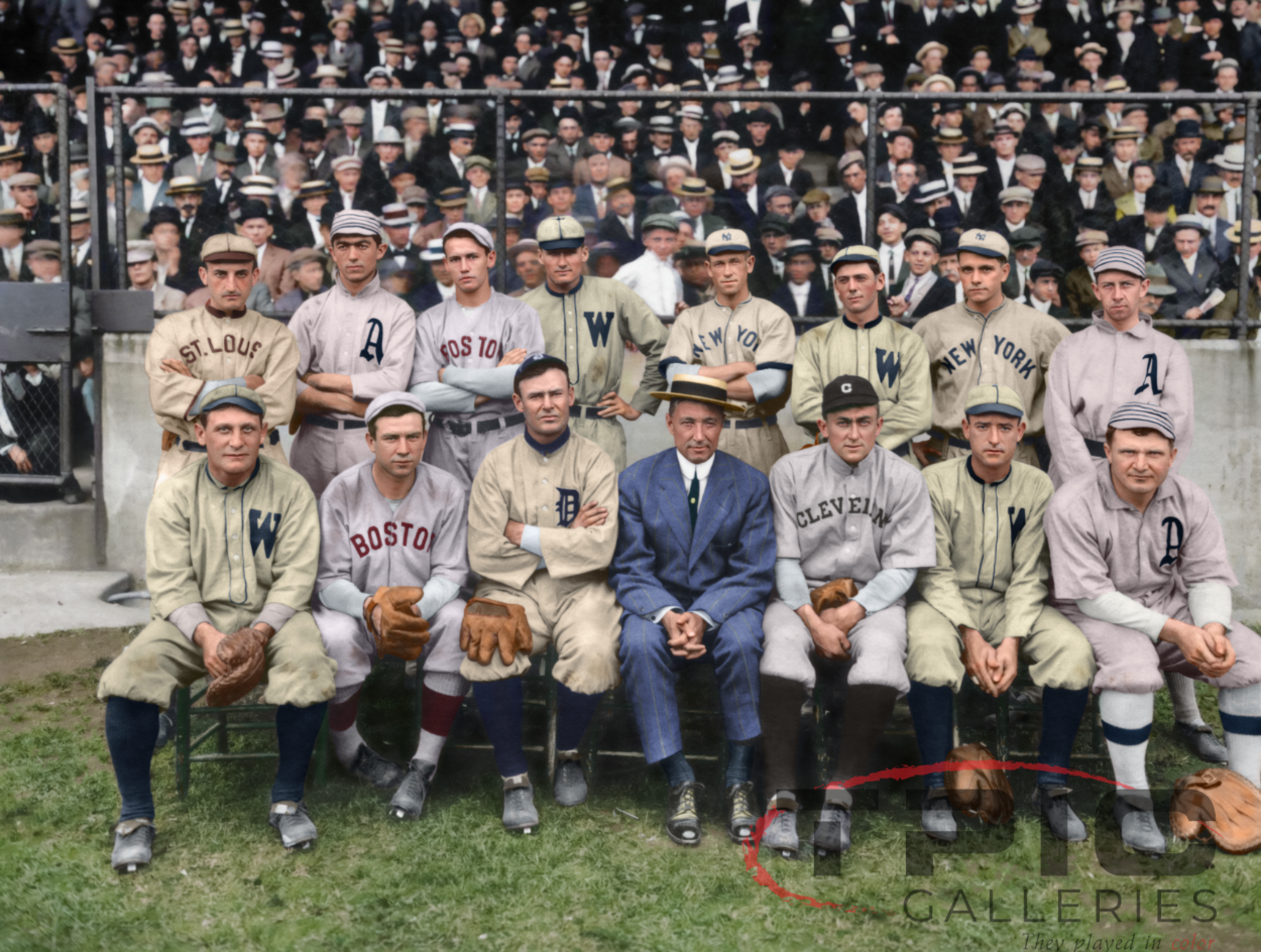
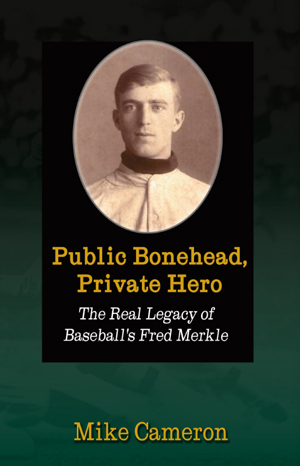
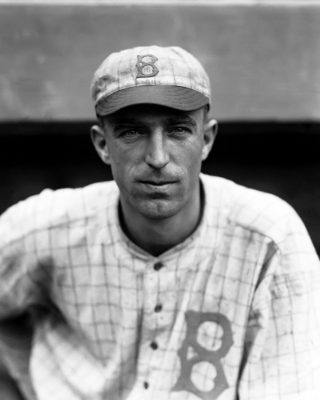
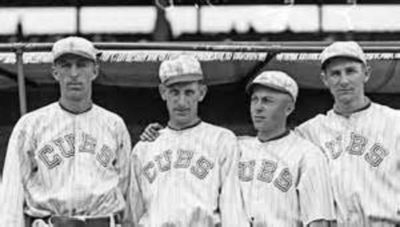
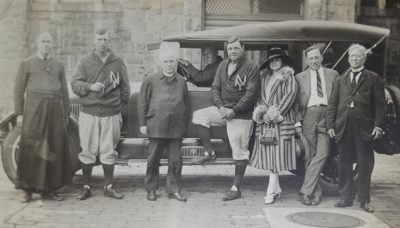
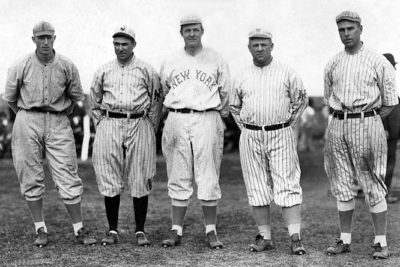
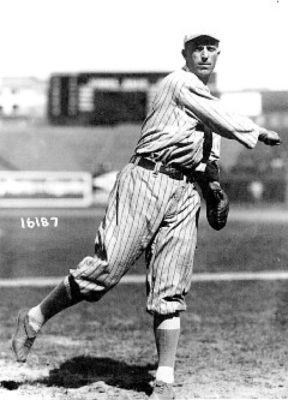
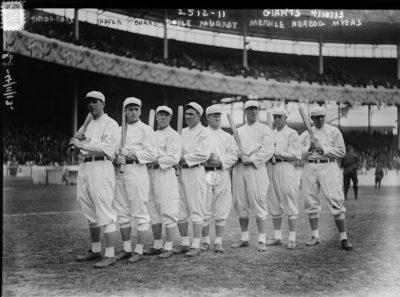
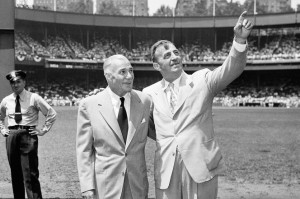
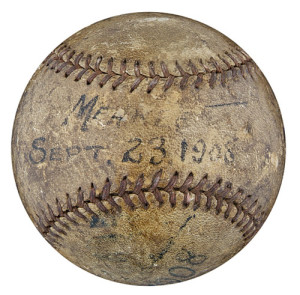
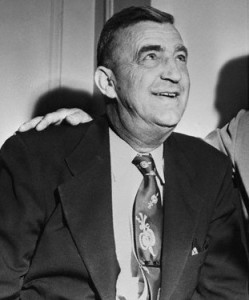
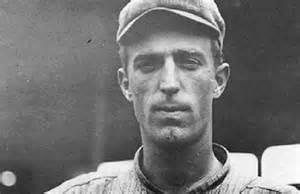

Hi Gary,
Thank you! This is a provocative and instructive portrayal, on several levels. As you so accurately say, relying on his dignity and self-respect in the face of adversity gave Mr. Merkle the strength to endure and eventually overcome a serious injustice. Congratulations to him! There is hardly any better life lesson than that — and I’m pretty sure we could all profit by it from time to time.
Funny you should mention Merkle now. Just the other day, some of the Olympics coverage reminded me of any number of old ballplayers who have come to be remembered more for their high-profile, supposed blunders on the diamond than for their otherwise sterling careers and admirable character traits. The following few (among many) leap to mind: Mickey Owen, Ralph Branca and Bill Buckner, for reasons which are self-evident to all baseball historians; and even Don Newcombe, who for years wore the label that he couldn’t “win the big one” despite being a multiple 20-game winner and the only player to win both rookie-of-the-year honors and the Cy Young Award (until Fernando Valenzuela came along). I’m sure other readers could contribute additional names to the list.
If they felt like it, that is. But they shouldn’t, because, as you point out, there’s a heck of a lot more to these men’s personae, athletic careers and achievements in life than what Branca chose to call “a moment in time.”
Thanks to Drs. Cameron, Livacari, and Merkle himself for helping to drive home that valuable point.
Very best wishes,
Michael
Thanks Michael As I’ve been saying for years, no one’s life should ever be altered for what happens at a baseball game. Baseball is meant to be fun and a form of escapism. When peoples’ life are changed for the worst because of what happens at a ball game (think Steve Bartman), then something is drastically wrong.
Side note. One of the “I did not know that” facts about Fred Merkle I discovered was reading Mudcat Grant’s obit recently.
Merkle saw Grant in a high school tournament in Florida in the early 50’s and was much impressed with his play (as a 3rd baseman, no less). Because Grant was still in high school and was in line for a scholarship at Florida A&M, Merkle didn’t pursue him further.
When Grant’s family was in dire financial need, Grant eventually dropped out and went to work as a carpenter to help the family.
Merkle got wind of it and, on behalf of the Cleveland Indians, offered him a minor league contract on a handshake.
From Boner to Mudcat. Sounds like a weird title for a
book.
Thanks Paul, that’s gerat info. And I didn’t know Mudcat passed away. I met him at a signing during Cubs spring training in Arizona a few years ago and had a real nice chat with him. I wrote a post about it. I’ll have to pull that one out and repost it. Really sorry to hear the news.
Mudcat was also a pretty good singer. Search the YouTube video of Grant singing “It’s a wonderful world” @ Harmon Killebrew’s Memorial at Target Field.
Bring Kleenex.
I’ll save you the the time:
https://youtu.be/vu8iu4xTDMU
Thanks Paul, I included the link into the post on Mudcat Grant.
No one ever mentions that the coaches are responsible for making sure the runners complete their tasks on the bases
Very enlightening, YFE. Growing up I had heard about the Merkle so called “blunder” through my dad, who was a great Giants fan. He indicated Merkle was victimized, but this is the first time I read the details. Never knew Fred was such an accomplished, bright guy.
Felt sorry for Branca, who endured perhaps the most agonizing moment in baseball history. But remember, Ralph also gave up the game winning two run homer to Bobby Thomson in the first playoff game at Ebbets Field.
Ralph Branca was a really good guy and a good pitcher who always wanted the ball. Unfortunately, he had the propensity to too often yield a big hit late in a ball game.
Thanks Bill…I was always glad to head Branca and Bobby Thomson became friends.